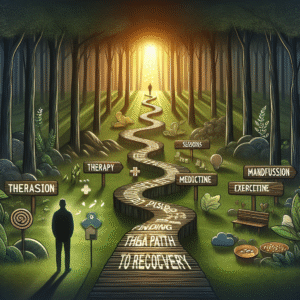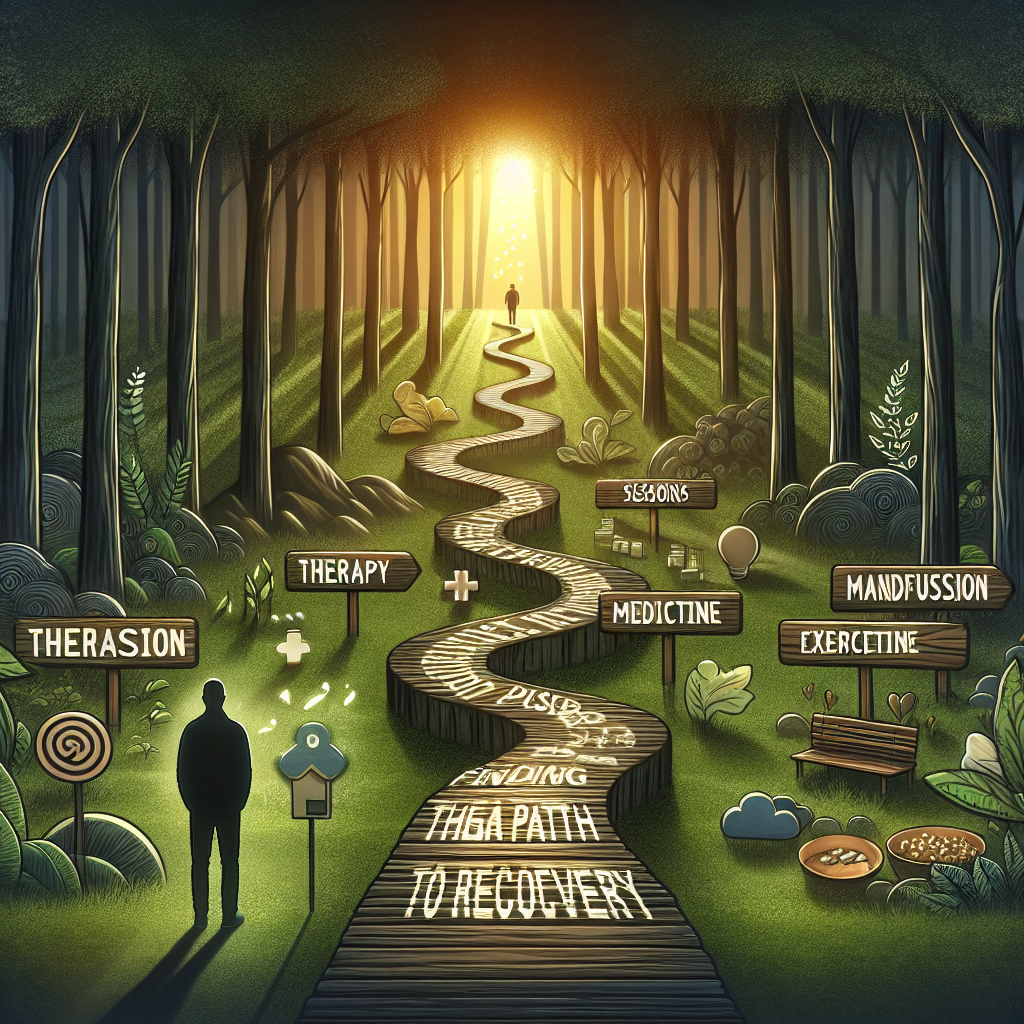Depression is a complex mental health condition that affects millions of individuals worldwide. The journey to recovery can often feel overwhelming, but understanding the treatment options available is the first step towards healing. This article explores various depression treatments, offering insights to help individuals find the right path to recovery.
Understanding Depression: The Many Facets of the Condition
Depression is not merely a feeling of sadness or despair; it can manifest in various forms, including major depressive disorder, persistent depressive disorder, and seasonal affective disorder. Symptoms often extend beyond emotional struggles, affecting physical well-being, social interactions, and daily functioning. Recognizing the multifaceted nature of depression is crucial in seeking effective treatment.
The Importance of Professional Help
Finding the right path to recovery begins with professional help. The stigma around mental health is gradually fading, but many still hesitate to seek assistance. It’s vital to remember that reaching out for support is a sign of strength, not weakness. A mental health professional can provide a proper diagnosis and tailor a treatment plan that suits an individual’s specific needs.
Types of Professionals to Consider
- Psychiatrists: Medical doctors who can prescribe medications and offer therapy.
- Psychologists: Professionals who primarily provide therapy and counseling.
- Licensed Therapists and Counselors: They offer various therapies to help cope with depression.
Exploring Treatment Options
1. Psychotherapy: A Journey of Self-Discovery
Psychotherapy, or talk therapy, plays a significant role in treating depression. It allows individuals to explore their feelings, thoughts, and behaviors in a safe environment. Common types of psychotherapy include:
- Cognitive Behavioral Therapy (CBT): Focuses on changing negative thought patterns and behaviors.
- Interpersonal Therapy (IPT): Addresses interpersonal issues and improves relationship skills.
- Dialectical Behavior Therapy (DBT): Combines cognitive-behavioral techniques with mindfulness strategies.
Each therapy type offers unique benefits, making it essential to find a therapist with whom one feels comfortable.
2. Medication: A Pharmacological Approach
While therapy is critical, many individuals benefit from medications that alleviate symptoms of depression. Antidepressants, such as SSRIs and SNRIs, can be highly effective. However, it’s vital to consult a psychiatrist to understand the potential side effects, dosage, and treatment duration. Finding the right medication may take time and may require adjustments to achieve optimal results.
3. Lifestyle Changes: Nurturing Body and Mind
Incorporating lifestyle changes can also significantly impact depression recovery. These include:
- Regular Exercise: Physical activity releases endorphins, natural mood lifters.
- Healthy Nutrition: A balanced diet rich in omega-3 fatty acids, fruits, and vegetables can enhance mood.
- Sleep Hygiene: Establishing a consistent sleep schedule fosters better mental health.
Making small, manageable changes in one’s lifestyle can lead to substantial improvements in mood and overall well-being.
4. Alternative Treatments: Broadening Horizons
For some, alternative treatments can provide relief when traditional methods fall short. These may include:
- Mindfulness and Meditation: Practices that promote emotional regulation and reduce stress.
- Yoga and Tai Chi: Physical movements that improve mental clarity and emotional balance.
- Acupuncture: Some studies suggest it may help alleviate symptoms of depression.
Always consult with a healthcare professional before starting alternative treatments to ensure they complement primary therapies.
Building a Support Network
Reaching out to friends, family, or support groups can be invaluable during recovery. Having a solid support network provides emotional encouragement and practical help. It fosters a sense of belonging and reduces feelings of isolation that often accompany depression.
Seeking Support: Connecting with Others
Support groups allow individuals to share experiences and coping strategies. Many organizations offer online support options, making it easier to connect with others facing similar challenges. This can provide comfort and reduce feelings of loneliness.
Monitoring Progress and Adjusting Treatment
Recovery from depression is a journey, not a destination. It’s essential to monitor progress and communicate with healthcare providers about what’s working and what’s not. Treatment plans may need to be adjusted over time to accommodate changing needs, ensuring a tailored approach to each individual’s recovery.
Finding Hope: A Pathway to Recovery
The road to recovery from depression can be daunting, but remember that hope exists, and help is available. By understanding the various treatment options and fostering a supportive environment, individuals can embark on a meaningful journey towards mental health. Each step taken is a testament to resilience, reminding us that recovery is possible.
If you or someone you know is struggling with depression, encourage them to seek help and take that crucial first step towards healing. By embracing the available resources and support, the path to recovery can become clearer, leading to a brighter tomorrow.






